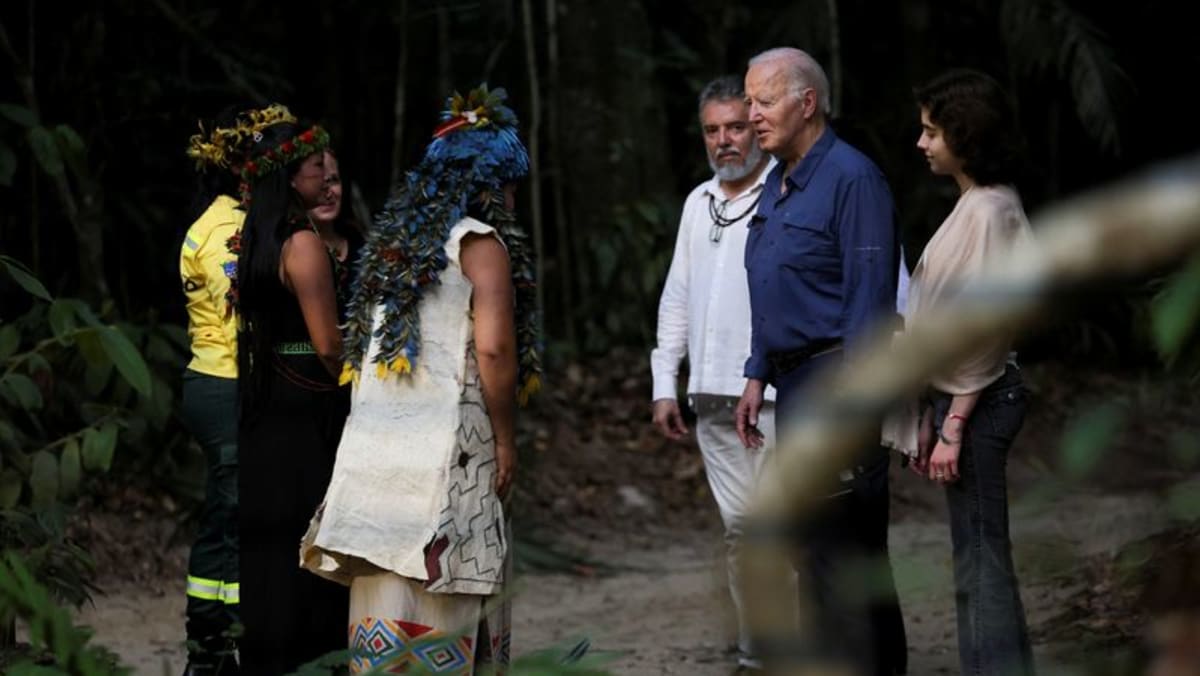Top diplomats of South Korea, Japan and China meet to restart trilateral summit

SEOUL, South Korea — SEOUL, South Korea (AP) — The top diplomats from South Korea, Japan and China met Sunday to discuss when to resume their leaders’ trilateral summit after a four-year hiatus and how to strengthen cooperation among the three Northeast Asian neighbors.
Closely linked economically and culturally with one another, the three countries together account for about 25% of the global gross domestic product. But efforts to boost trilateral cooperation have often hit a snag because of a mix of issues including historical disputes stemming from Japan’s wartime aggression and the strategic competition between China and the United States.
“Korea, Japan and China have the potential for massive cooperation. Our three countries are neighbors that can’t be separated from one another,” South Korean Foreign Minister Park Jin said at the start of the meeting in Busan, South Korea. “I hope we can strive together to hold the South Korea-Japan-China summit, which is at the apex of three-way cooperation, at an early date.”
Japanese Foreign Minister Yoko Kamikawa and Chinese Foreign Minister Wang Yi said they would also push to revive three-way cooperation. Park said he hoped Sunday’s meeting would also discuss ways of collaboration in the face of North Korea’s evolving nuclear threats, as well as trade, climate change and personnel exchange between the three countries.
In September, senior officials of the three nations agreed to restart the trilateral summit “at the earliest convenient time.”
Since they held their first stand-alone, trilateral summit in 2008, the leaders of the three countries had been supposed to meet annually. But their summit has faced on-again, off-again suspensions and remains stalled since 2019.
Their relationships are intertwined with a slew of complicated, touchy issues.
South Korea and Japan are key U.S. military allies, hosting a total of 80,000 American troops on their territories. Their recent push to beef up a trilateral security cooperation with the United States has angered China, which is extremely sensitive to any moves it perceives as seeking to contain its rise to dominance in Asia.
But some observers say that the fact that Chinese President Xi Jinping and President Joe Biden struck a conciliatory tone in their first face-to-face meeting in a year earlier this month would provide Seoul, Tokyo and Beijing with diplomatic rooms to maneuver to find ways to revive three-way cooperation.
The three ministers held bilateral talks on the sidelines.
After her meeting with Wang on Saturday, Kamikawa said she renewed Japan’s demand that China remove its ban on seafood imports from Japan in response to Tokyo’s discharge of treated radioactive wastewater from its tsunami-hit nuclear power plant. Wang, for his part, said China opposed Japan’s “irresponsible action” of releasing the wastewater and called for an independent monitoring mechanism of the process, according to the Chinese Foreign Ministry.
Ties between South Korea and Japan deteriorated severely in past years due to issues originating from Japan’s 1910-45 colonization of the Korean Peninsula. But their relations have warmed significantly in recent months as the two countries took a series of major steps to move beyond history wrangling and boost bilateral cooperation in the face of North Korea’s advancing nuclear program and other shared challenges.
In a reminder of their difficult relations, however, a Seoul court earlier this week ordered Japan to financially compensate Koreans forced into sexual slavery by Japanese troops during the colonial period.
During her meeting with Park Sunday, Kamikawa called the court verdict “extremely regrettable” and urged South Korea to take appropriate steps to remedy the breaches of international law, according to Japan’s consulate-general in Busan. South Korea’s Foreign Ministry said the two ministers discussed the court ruling as well as ways to work together to reinvigorate three-way cooperation with China. The ministry also said that both strongly condemned the North’s spy satellite launch last week.
Meeting Wang bilaterally, Park asked for China to play a constructive role in persuading North Korea to halt provocations and take steps toward denuclearization, according to South Korea’s Foreign Ministry.
Wang described China as “a stabilizing force” in the region that has “always played and will continue to play a constructive role in easing the situation on the peninsula,” according to the Chinese Foreign Ministry. It said Wang called for stronger trade and economic ties between the two countries and criticized the “tendency to politicize economic issues.”
North Korea’s growing arsenal of nuclear-capable missiles poses a major security threat to South Korea and Japan. But China, North Korea’s last major ally and biggest source of aid, is suspected of avoiding fully enforcing United Nations sanctions on North Korea and shipping covert assistance to the North to help its impoverished neighbor stay afloat and continue to serve as a bulwark against U.S. influences on the Korean Peninsula.
__
Associated Press journalists Kim Yong-ho in Busan, Mari Yamaguchi in Tokyo, Japan and Simina Mistreanu in Taipei, Taiwan contributed to this report.
Source: abc news















